
The Colonial Charms of White Town, Pondicherry
White Town, located in the heart of Pondicherry, is a beautiful blend of French colonial architecture and Indian culture. Walking through its streets feels like stepping back in time, with pastel-colored buildings, quaint cafes, and tree-lined avenues that evoke a distinctly European ambiance. This area is perfect for a leisurely stroll, where you can explore the many art galleries, boutiques, and antique shops. The French Quarter, as it is also known, is home to some of the most iconic landmarks in Pondicherry, such as the Basilica of the Sacred Heart of Jesus and the famous Promenade Beach. The serene atmosphere is further enhanced by the many parks and green spaces scattered throughout the neighborhood. Food lovers will delight in the culinary offerings of White Town, which range from traditional South Indian dishes to French delicacies. The blend of cultures is evident in the array of restaurants and cafes, many of which are housed in restored colonial buildings. Overall, White Town offers a unique and enriching experience for all who visit.
Local tips in White Town
- Visit early in the morning or late in the afternoon to avoid the midday heat and enjoy a pleasant walk.
- Don't miss the Promenade Beach at sunset for a breathtaking view and a relaxing atmosphere.
- Try the local pastries and coffee at one of the many charming cafes along the streets.
- Rent a bicycle for a more immersive experience of exploring the narrow lanes and hidden gems.
- Take a guided heritage walk to learn more about the rich history and architecture of the area.
The Colonial Charms of White Town, Pondicherry
White Town, located in the heart of Pondicherry, is a beautiful blend of French colonial architecture and Indian culture. Walking through its streets feels like stepping back in time, with pastel-colored buildings, quaint cafes, and tree-lined avenues that evoke a distinctly European ambiance. This area is perfect for a leisurely stroll, where you can explore the many art galleries, boutiques, and antique shops. The French Quarter, as it is also known, is home to some of the most iconic landmarks in Pondicherry, such as the Basilica of the Sacred Heart of Jesus and the famous Promenade Beach. The serene atmosphere is further enhanced by the many parks and green spaces scattered throughout the neighborhood. Food lovers will delight in the culinary offerings of White Town, which range from traditional South Indian dishes to French delicacies. The blend of cultures is evident in the array of restaurants and cafes, many of which are housed in restored colonial buildings. Overall, White Town offers a unique and enriching experience for all who visit.
Iconic landmarks you can’t miss
Rock Beach
Discover the serene beauty of Rock Beach in Puducherry, where stunning sunrises and vibrant local culture await every traveler.
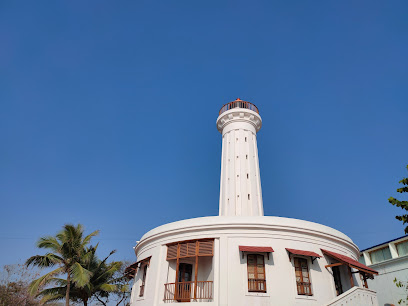
Arulmigu Manakula Vinayagar Devasthanam
Explore the enchanting Arulmigu Manakula Vinayagar Devasthanam, a stunning Hindu temple in Puducherry, rich in history and spiritual heritage.
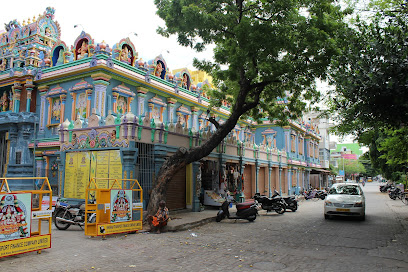
Mahatma Gandhi Statue
Discover the elegance of the Mahatma Gandhi Statue in Puducherry—a captivating tribute to peace and resilience surrounded by scenic beauty.
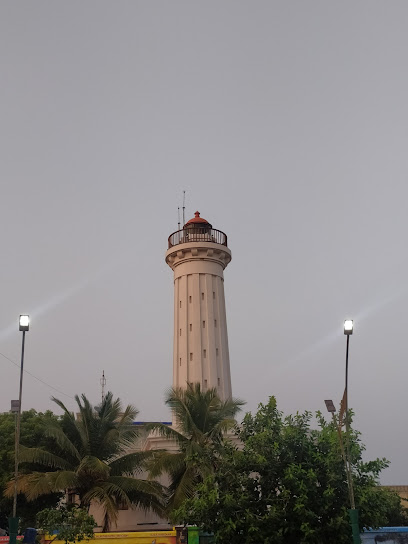
Mahakavi Bharathiyar Memorial Centre
Discover the rich literary heritage of Tamil Nadu at the Mahakavi Bharathiyar Memorial Centre in Puducherry, celebrating the life of a legendary poet and freedom fighter.
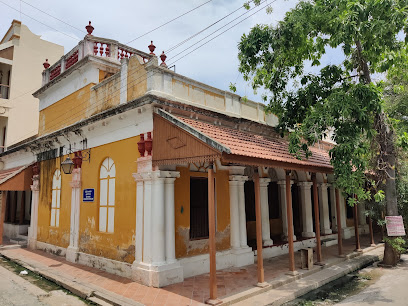
French War memorial
Explore the serene French War Memorial in Puducherry, a historical tribute set in the charming White Town, ideal for reflection and remembrance.
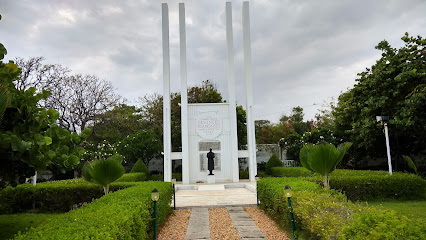
Aayi Mandapam
Discover Aayi Mandapam, a historic monument in Puducherry that beautifully reflects the city's rich heritage and architectural elegance.
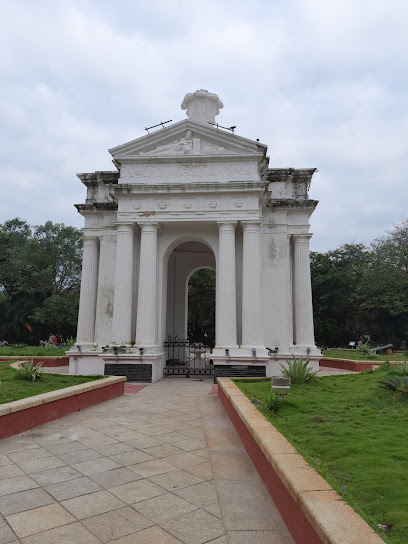
White Town
Explore the enchanting streets of White Town, Puducherry, where colonial charm meets vibrant culture and delightful cuisine.
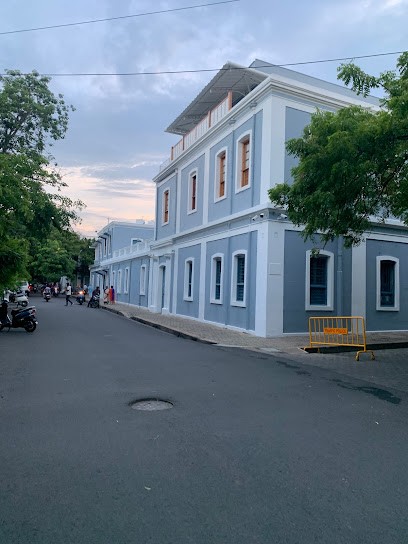
Pondicherry french city (White Town)
Experience the enchanting blend of Indian and French cultures in Pondicherry's charming White Town, a vibrant destination for travelers seeking unique adventures.
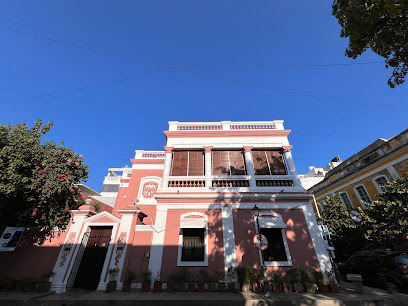
Joan Of Arc Statue
Explore the Joan of Arc Statue in Puducherry, a historical monument celebrating courage and the rich heritage of this charming coastal city.
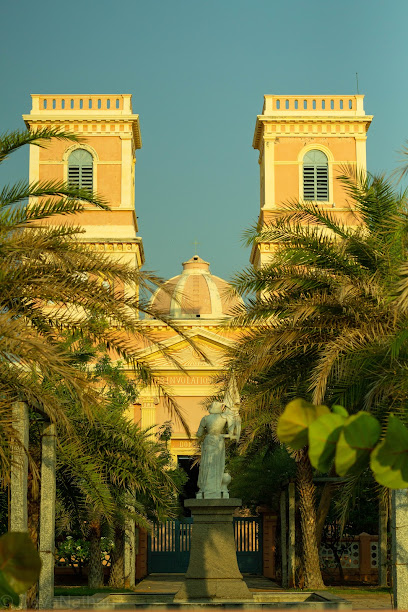
Pondicherry white town
Explore the enchanting charm of Pondicherry's White Town, where French colonial elegance meets vibrant Indian culture and coastal beauty.
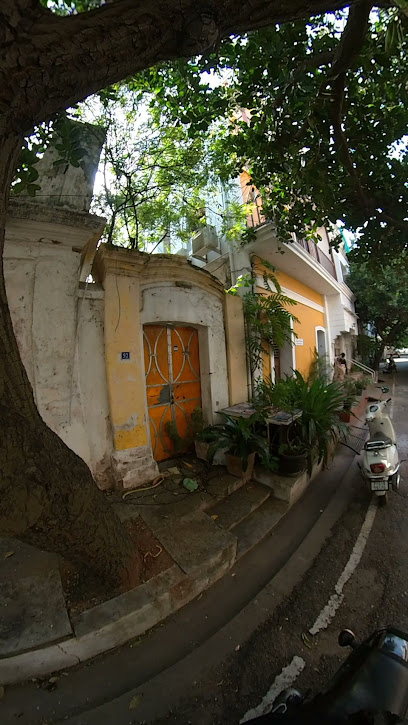
Unmissable attractions to see
Arulmigu Manakula Vinayagar Devasthanam
Explore the Arulmigu Manakula Vinayagar Devasthanam in Puducherry, a captivating Hindu temple celebrated for its stunning architecture and vibrant spiritual atmosphere.
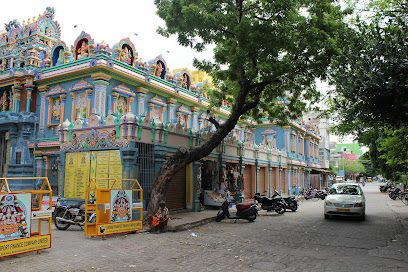
Botanical Garden
Explore the lush landscapes and diverse flora at the Botanical Garden in Puducherry, a serene retreat for nature lovers and a cultural landmark.
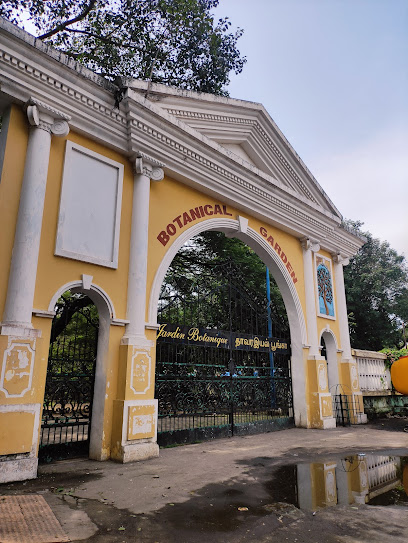
Aayi Mandapam
Discover the captivating Aayi Mandapam, a historic monument in Puducherry that beautifully showcases the region's architectural splendor and serene ambiance.
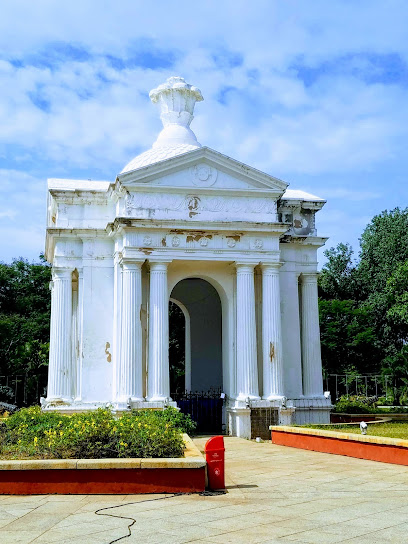
Rock Mountains - Picture Spot
Explore the stunning Rock Mountains - Picture Spot in Puducherry, a captivating destination for photography and breathtaking views of nature.
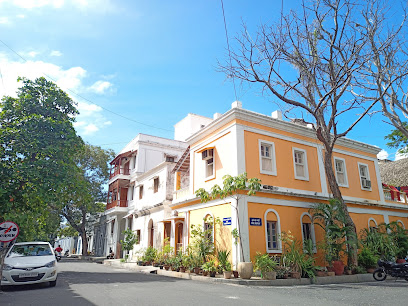
Pondicherry french city (White Town)
Explore Pondicherry's French Quarter, a captivating blend of colonial charm, vibrant culture, and serene coastal beauty that enchants every traveler.
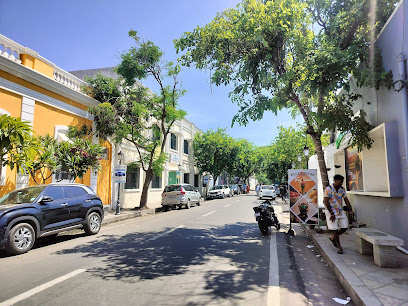
Joan Of Arc Statue
Discover the Joan of Arc Statue in Puducherry, a historic monument celebrating French heritage and the spirit of courage amidst charming colonial architecture.
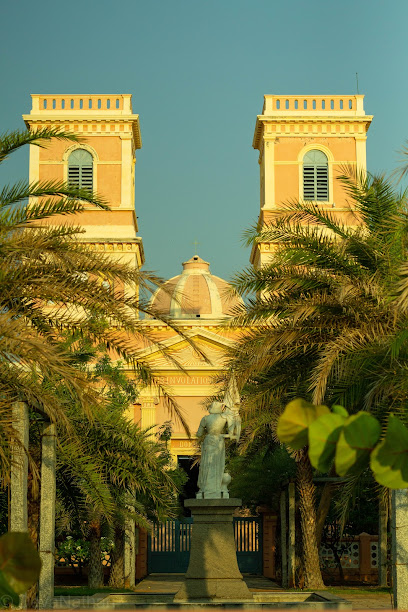
Picture Spot - Outside Cafe des Arts
Discover the picturesque charm of Puducherry at the Picture Spot outside Cafe des Arts, a perfect backdrop for unforgettable travel memories.
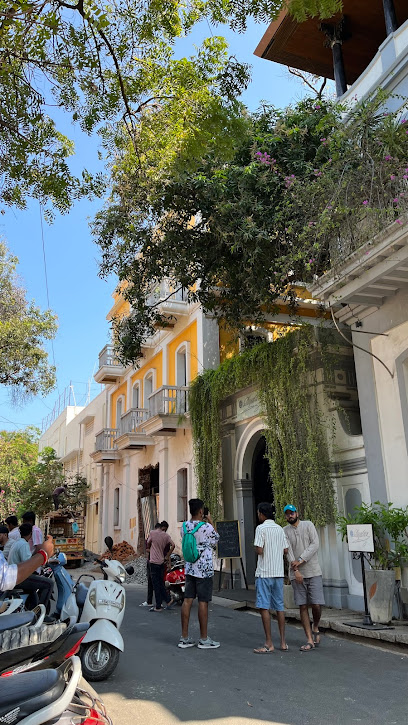
PONDY BA BEACH
Discover the tranquil beauty of Pondy Ba Beach in Puducherry, where golden sands meet the vibrant hues of the sunset.
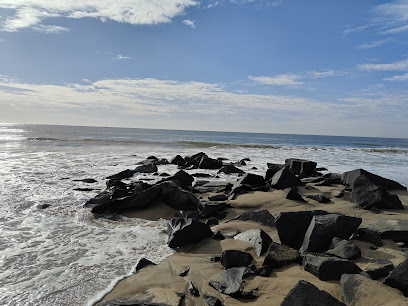
Pondicherry white town
Experience the vibrant blend of French and Indian cultures in the charming streets of Pondicherry's White Town, a must-visit tourist attraction.
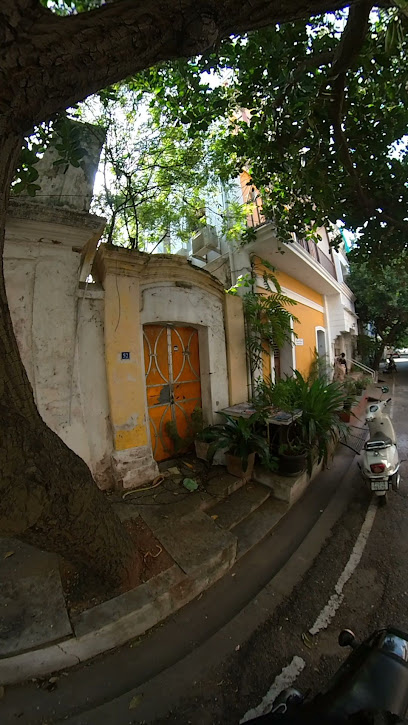
Essential places to dine
Villa Shanti Hotel & Restaurant
Discover Villa Shanti in Puducherry: A harmonious blend of French elegance and North Indian flavors awaits you at this exquisite hotel and restaurant.
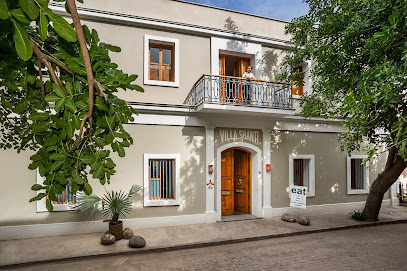
Coromandel Cafe
Discover Coromandel Cafe in Puducherry - where culinary tradition meets modern dining in an enchanting setting.
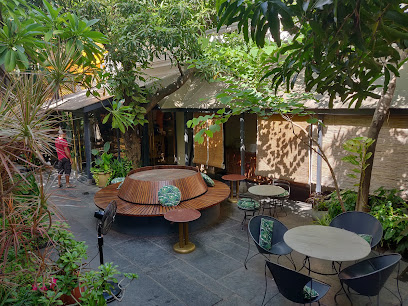
KAMATCHI (Non-Veg Restaurant)White Town branch
Experience the rich flavors of Chettinad cuisine at Kamatchi in White Town, Puducherry – a must-visit for food lovers.
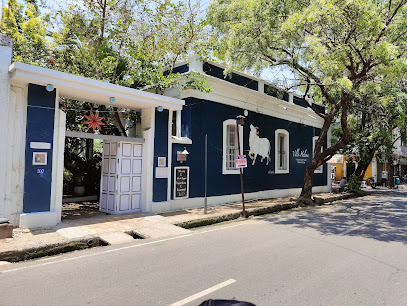
Escape In, Multi Cuisine, Sea View Restaurant
Discover Escape In: A multi-cuisine fine dining restaurant offering breathtaking sea views in Puducherry's White Town.
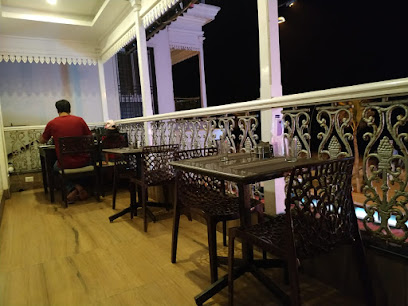
Dilliwaala6
Discover authentic North Indian flavors at Dilliwaala6 in Puducherry's vibrant White Town – where culinary delight meets cultural heritage.
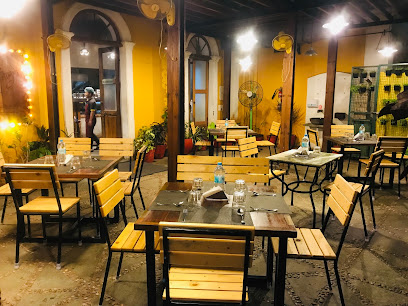
Rendezvous Cafe Restaurant
Experience the best of European and French cuisine at Rendezvous Cafe Restaurant in Puducherry's charming White Town.
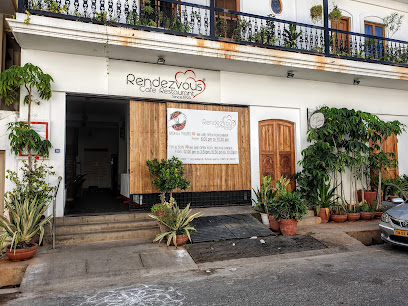
Madame Shanthe's Cafe Restaurant
Experience the best of global cuisine at Madame Shanthe's Cafe Restaurant in Puducherry - where every meal is a celebration of flavor.
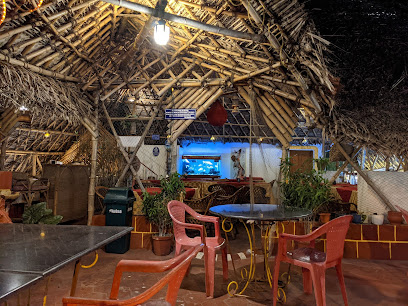
Les Saveurs
Experience exquisite French cuisine at Les Saveurs in Puducherry's charming White Town - where culinary art meets local charm.
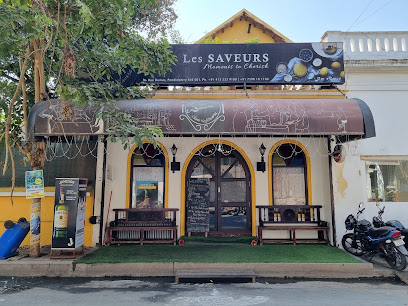
Sky Garden
Experience exquisite dining at Sky Garden in Puducherry - where nature meets culinary excellence.
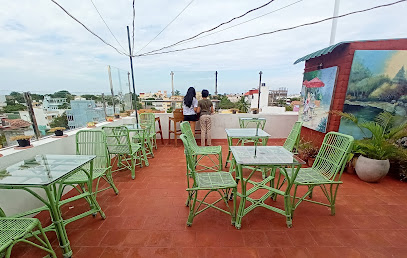
FEAST HOUSE
Experience authentic Indian cuisine at Feast House in Puducherry - where every dish tells a story.
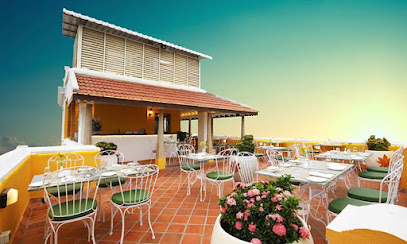
Markets, malls and hidden boutiques
Casablanca
Explore the vibrant Casablanca in Puducherry, where fashion, home decor, and delightful treats come together in a unique shopping experience.
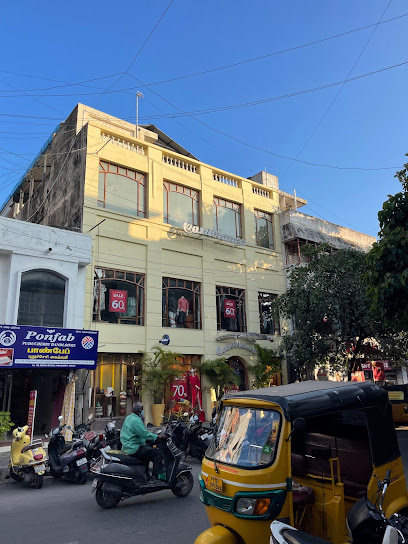
AURA EXPERIENCE STORE
Explore the vibrant AURA EXPERIENCE STORE in Puducherry for unique handicrafts and authentic souvenirs that reflect the local culture and artistry.
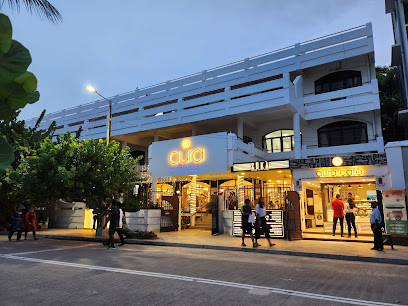
Anokhi
Explore Anokhi in Puducherry: A boutique that embodies Indian craftsmanship and sustainable fashion with unique handcrafted textiles and accessories.
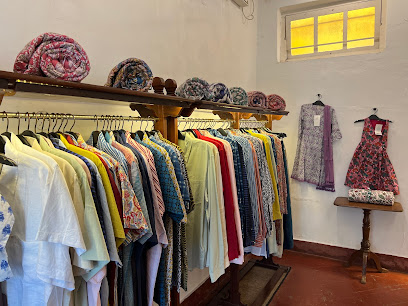
Street shop pondy
Discover unique souvenirs and local crafts at Street Shop Pondy, a charming gift shop in the heart of White Town, Puducherry.
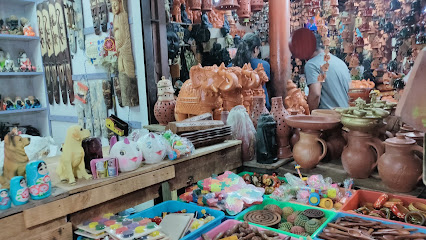
VIA PONDICHERY
Explore VIA PONDICHERY for a unique blend of fashion and culture with exquisite bags and clothing in the heart of Puducherry.
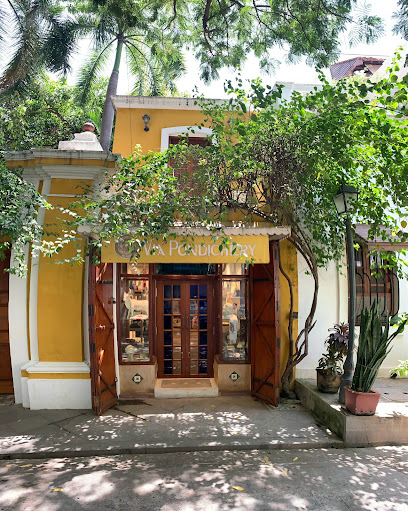
UPASANA PONDICHERRY
Explore Upasana Pondicherry: A Boutique of Handcrafted Elegance in the Heart of Heritage Town, Showcasing Local Artistry and Culture.
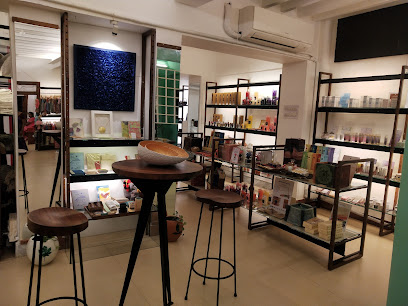
Auro Boutique
Discover the charm of Puducherry at Auro Boutique, where exquisite gifts, incense, and perfumes await your exploration.
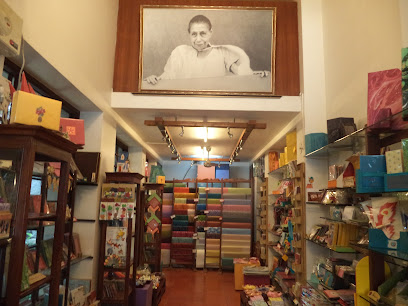
Kriti Ecoboutique
Discover Kriti Ecoboutique: Your go-to destination for eco-friendly souvenirs, clothing, and local spices in the heart of Puducherry's Heritage Town.
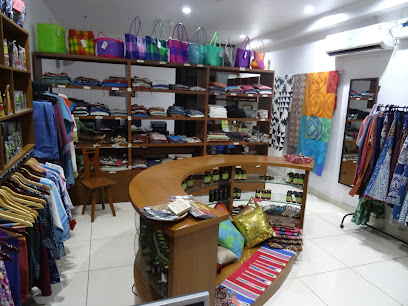
MERAKI Lifestyle Store
Explore the charm of Puducherry at MERAKI Lifestyle Store, where fashion meets local artistry in a delightful shopping experience.
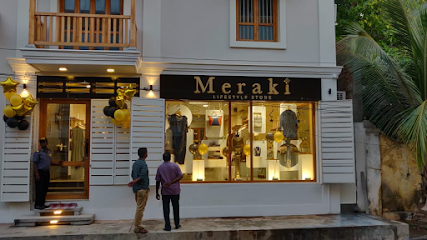
Amethyst
Explore Amethyst in Puducherry for a unique boutique experience filled with local craftsmanship and artistic treasures.
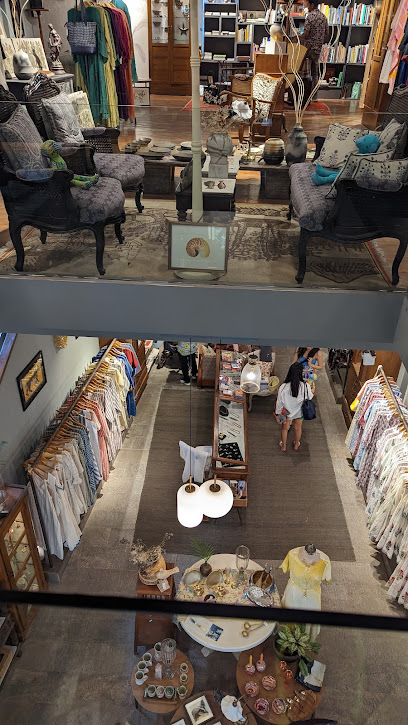
Essential bars & hidden hideouts
1 RUE SUFFREN - Best Resto Bar Restaurant in White Town - Pondicherry
Experience exquisite dining at 1 Rue Suffren, a top-notch restaurant in White Town, Puducherry, serving fine French and seafood cuisine.
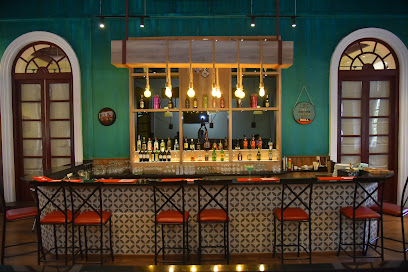
Flaming Dragons Lounge & Nightlife
Discover the ultimate nightlife experience at Flaming Dragons Lounge in Puducherry, where Asian cuisine meets electrifying entertainment.
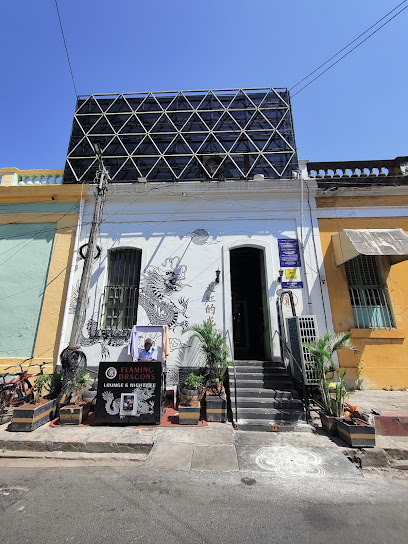
Asianhouse-Best pub in Pondicherry | Top-rated pub with live music dance floor and food offers| Nightlife Happy Hours
Discover vibrant nightlife at Asianhouse, the top-rated pub in Pondicherry featuring live music, delicious food, and a lively atmosphere.
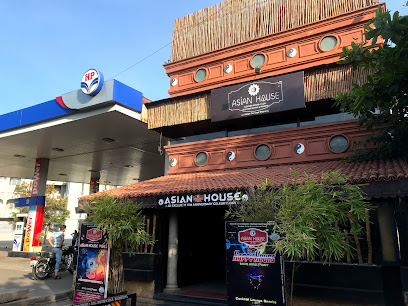
LB2 eclipse rooftop
Experience breathtaking views and delectable cuisine at LB2 Eclipse Rooftop, a must-visit lounge in Puducherry's vibrant White Town.
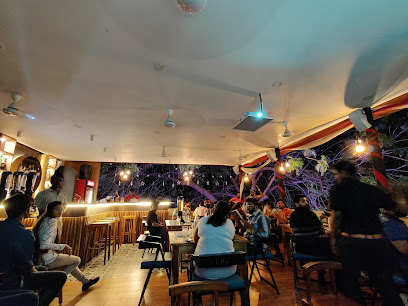
GRAVITY RESTOPUB & HOOKAH CLUB-,NIGHTCLUB-Pondicherry
Discover the vibrant nightlife at Gravity Restopub & Hookah Club in Pondicherry, where delicious cuisine meets lively entertainment in a unique ambiance.
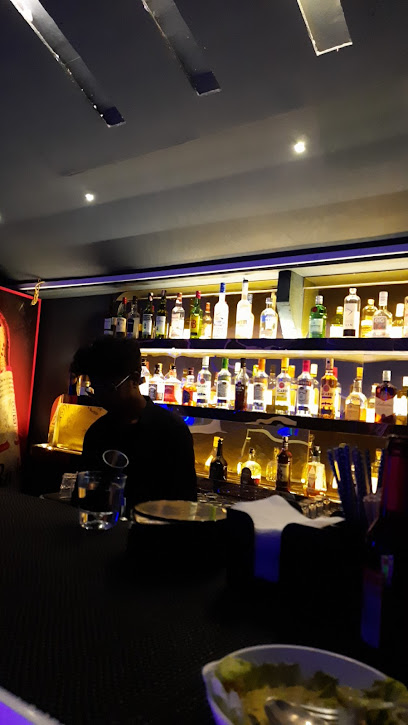
way to fly pub and skylounge
Discover the lively ambiance and stunning views at Way to Fly Pub and Skylounge in Puducherry, a perfect blend of nightlife and local culture.
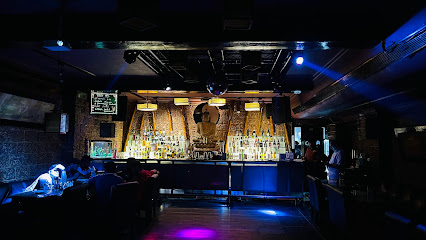
Mel Whisks - Gastro Bar Pondicherry
Discover the vibrant culinary scene at Mel Whisks, a gastro bar offering a unique blend of local and international flavors in the heart of Heritage Town, Pondicherry.
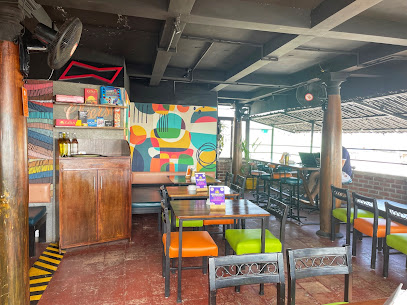
The Storytellers' Bar
Discover the enchanting ambiance and exquisite cocktails at The Storytellers' Bar, the perfect nightlife spot in Puducherry's White Town.
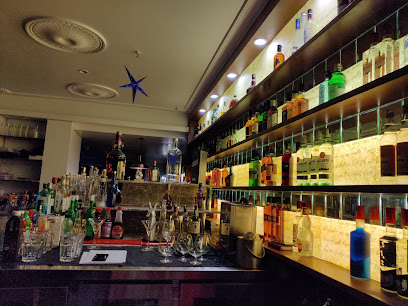
Poudou Poudou Restaurant + Bar Lounge
Discover the vibrant flavors of Puducherry at Poudou Poudou Restaurant + Bar Lounge, where culinary tradition meets modern dining in a charming ambiance.
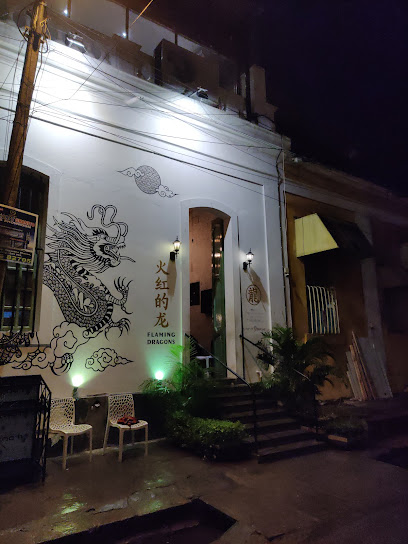
CRYSTAL PUB
Discover the lively atmosphere of Crystal Pub in White Town, Puducherry, where cocktails and camaraderie create unforgettable memories.
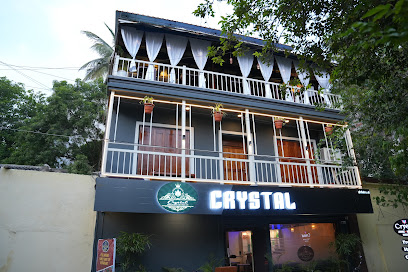
SKOL Kitchen & Pub
Discover the lively ambiance of SKOL Kitchen & Pub in Puducherry, where delicious food, refreshing drinks, and vibrant entertainment await you.
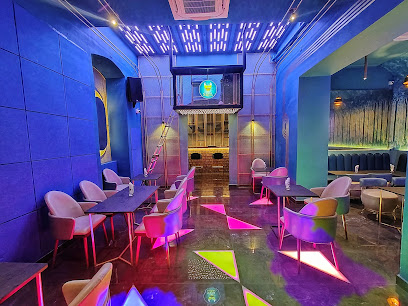
Le Ciel Rooftop Restobar
Experience the breathtaking views and vibrant atmosphere of Le Ciel Rooftop Restobar in the heart of Puducherry's White Town.
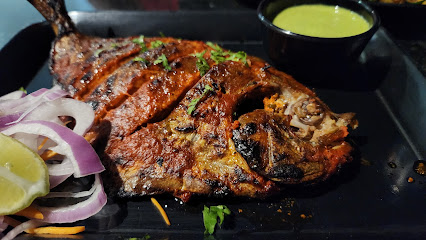
Local Phrases
-
- Helloவணக்கம்
[Vanakkam] - Goodbyeபிரிய்ம்புகள்
[Piriyumbugal] - Yesஆம்
[Aam] - Noஇல்லை
[Illai] - Please/You're welcomeதயவு
[Dayavu] - Thank youநன்றி
[Nandri] - Excuse me/Sorryமன்னிக்கவும்
[Mannikkavum] - How are you?எப்படி இருக்கிறீர்கள்?
[Epadi irukkireergal?] - Fine. And you?நன்று. நீங்கள் எப்படி?
[Nandru. Neengal epadi?] - Do you speak English?நீங்கள் ஆங்கிலம் பேசுகிறீர்களா?
[Neengal angilam pesukireergala?] - I don't understandநான் புரியவில்லை
[Naan puriyavillai]
- Helloவணக்கம்
-
- I'd like to see the menu, pleaseமென்யூ பார்க்க வேண்டும்
[Menu paarkka vendum] - I don't eat meatநான் மாம்சம் சாப்பிடவில்லை
[Naan maamsam saappidavillai] - Cheers!கண்ணாடி!
[Kannadi] - I would like to pay, pleaseசம்பாதிக்க வேண்டும்
[Sampathikka vendum]
- I'd like to see the menu, pleaseமென்யூ பார்க்க வேண்டும்
-
- Help!உதவு!
[Udhavu] - Go away!பின்னால் போகு!
[Pinnal poku] - Call the Police!காவல் அலுகை!
[Kaaval alukai] - Call a doctor!ஒரு மருத்துவரை அழைக்கவும்!
[Oru maruthuvarai azhaikkavum] - I'm lostநான் காணவில்லை
[Naan kaanavillai] - I'm illஎனக்கு நோய் உள்ளது
[Enakku noy ulladhu]
- Help!உதவு!
-
- I'd like to buy...வாங்க வேண்டும்...
[Vaanga vendum...] - I'm just lookingநான் பார்க்கிறேன்
[Naan paarkireen] - How much is it?அதில் எவ்வளவு?
[Adil evvalavu?] - That's too expensiveஅது மிகவும் முதலானது
[Adhu migavum mudalanaadhu] - Can you lower the price?விலையை குறைக்கலாமா?
[Vilaiyai kuraikkalaama?]
- I'd like to buy...வாங்க வேண்டும்...
-
- What time is it?எந்த நேரம்?
[Endha neram?] - It's one o'clockஒரு மணி
[Oru mani] - Half past (10)பத்தரை
[Patharai] - Morningகாலை
[Kaalam] - Afternoonமதியம்
[Mathiyam] - Eveningமாலை
[Maalai] - Yesterdayநேற்று
[Netru] - Todayஇன்று
[Indru] - Tomorrowநாளை
[Naalai] - 1ஒன்று
[Onru] - 2இரண்டு
[Irandu] - 3மூன்று
[Moonru] - 4நான்கு
[Naanku] - 5ஐந்து
[Aindhu] - 6ஆறு
[Aaru] - 7ஏழு
[Ezhu] - 8எட்டு
[Ettu] - 9ஒன்பது
[Onpathu] - 10பத்து
[Pathu]
- What time is it?எந்த நேரம்?
-
- Where's a/the...?எங்கே ஒரு...
[Engae oru...] - What's the address?முகவரி என்ன?
[Mugavari enna?] - Can you show me (on the map)?எனக்கு கார்ட்டாவில் காண்கிறாயா?
[Enakku kaartaavil kaangirayaa?] - When's the next (bus)?அடுத்த...
[Adutha...] - A ticket (to ....)ஒரு டிக்கெட் (... க்கு)
[Oru ticket (...kku)]
- Where's a/the...?எங்கே ஒரு...
History of White Town
-
White Town, also known as the French Quarter, was established during the French colonial era in the 18th century. The French East India Company founded Pondicherry in 1674, and White Town became the residential area for French officials and traders. Characterized by its distinct colonial architecture, the neighborhood reflects French urban planning with wide streets, bougainvillea-draped buildings, and vibrant pastel colors.
-
The Treaty of Paris in 1763 marked a significant turning point for Pondicherry and White Town. Following the Seven Years' War, France ceded much of its Indian territories to the British, but Pondicherry remained under French control, preserving its unique cultural identity. The treaty allowed for a continued French presence, which influenced the local culture and architecture for centuries.
-
Throughout the 19th and early 20th centuries, White Town became a melting pot of cultures. The neighborhood not only housed French colonists but also Tamil, Telugu, and other communities. This confluence of cultures gave rise to a unique blend of cuisines, festivals, and languages, where French and Indian traditions coexisted harmoniously, evident in local customs and culinary practices.
-
During World War II, White Town experienced significant changes as it served as a refuge for displaced Europeans. The region saw a surge in expatriates, which led to a temporary revival of French culture and language. However, the war also brought challenges, including shortages and economic strain, impacting the local populace and altering the neighborhood's dynamics.
-
Following India's independence in 1947 and the subsequent decolonization process, White Town's identity evolved. The local government aimed to preserve the architectural heritage while promoting tourism. Today, the neighborhood showcases a blend of colonial charm and modernity, attracting visitors seeking to experience its rich history and vibrant culture.
White Town Essentials
-
White Town is centrally located in Pondicherry and can be easily accessed from other neighborhoods such as Heritage Town, Lawspet, and Villianur. Auto-rickshaws are a popular and convenient mode of transport. You can also hire a bicycle or rent a scooter for a more personalized experience. If you are coming from the airport, a taxi will take approximately 30 minutes, while the nearest railway station is Pondicherry Railway Station, about 2 kilometers away.
-
White Town is pedestrian-friendly, making walking the best way to explore its charming streets. Bicycles are available for rent, providing an eco-friendly way to see the area. While there is no train service within the town, auto-rickshaws and taxis are readily available for longer distances. Public buses connect White Town to other parts of Pondicherry, but schedules can be inconsistent.
-
White Town is generally safe for tourists; however, standard precautions should be taken. Avoid walking alone late at night and stay vigilant in crowded areas. While there are no specific high-crime areas, petty theft can occur, especially near busier tourist spots. Keep your belongings secure and be cautious when interacting with strangers.
-
In case of an emergency, dial 100 for police assistance or 108 for medical emergencies. The local hospital is Pondicherry Institute of Medical Sciences, which is well-equipped for most health issues. It is advisable to have travel insurance that covers medical needs. For minor ailments, local pharmacies are available throughout White Town.
-
Fashion: Do wear light, breathable clothing suitable for the tropical climate, and consider modest attire when visiting religious sites. Religion: Do respect local customs—remove shoes when entering temples and churches. Public Transport: Do offer your seat to elderly passengers in public buses, and don’t eat or drink on public transport. Greetings: Do greet locals with a smile and a 'hello,' and do not engage in overly familiar gestures unless invited. Eating & Drinking: Do try local street food and drink bottled water; don’t refuse food offerings, as this can be seen as rude.
-
To experience White Town like a local, visit the vibrant markets and artisanal shops along Rue de la Caserne. Engage with local vendors and try your hand at bargaining. Don’t miss the chance to enjoy a leisurely meal at a café overlooking the beach, particularly during sunset. Additionally, explore the nearby Auroville community for a unique cultural experience, just a short ride from White Town.
Nearby Cities to White Town
-
Things To Do in Pondicherry
-
Things To Do in Chennai
-
Things To Do in Jaffna
-
Things To Do in Bengaluru
-
Things To Do in Madurai
-
Things To Do in Coimbatore
-
Things To Do in Mysore
-
Things To Do in Trincomalee
-
Things To Do in Anuradhapura
-
Things To Do in Kozhikode
-
Things To Do in Kochi
-
Things To Do in Sigiriya
-
Things To Do in Polonnaruwa
-
Things To Do in Trivandrum
-
Things To Do in Kanyakumari











